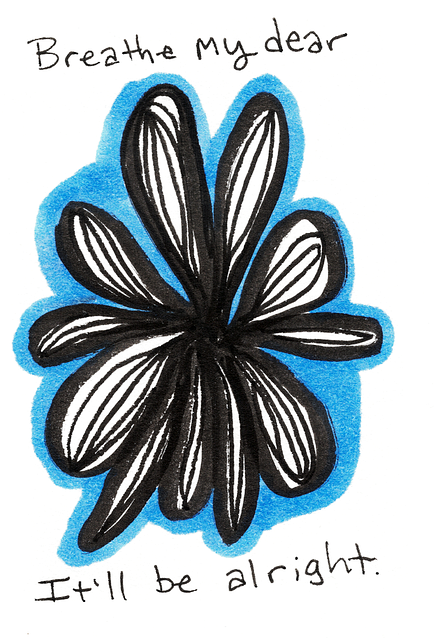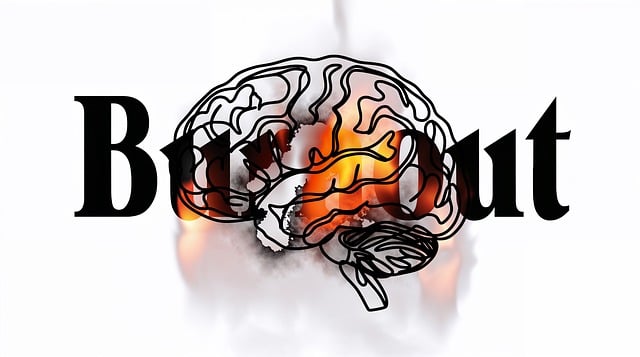Golden Chronic Pain Therapy is a comprehensive approach to managing long-term pain by addressing both physical symptoms and emotional well-being. It emphasizes teaching patients powerful emotion regulation techniques, such as mindfulness meditation, to reduce stress and anxiety. By integrating mental health education and cognitive strategies, this holistic method enhances resilience, improves mental health, and boosts quality of life for diverse populations. Key tools include self-awareness exercises, risk management planning, positive affirmations, and mindfulness practices, which foster emotional coping and reduce negative emotions associated with chronic pain.
Emotion regulation techniques are essential tools for managing stress, anxiety, and chronic pain. This comprehensive guide explores effective strategies, focusing on the transformative potential of Golden Chronic Pain Therapy. We delve into understanding emotion regulation as a key component of overall well-being, and present practical techniques leveraging mindfulness and cognitive strategies. By incorporating these methods, individuals can build resilience, foster long-term mental health, and alleviate symptoms associated with chronic pain.
- Understanding Emotion Regulation and its Importance
- The Golden Chronic Pain Therapy Approach
- Practical Techniques for Effective Emotion Management
- Incorporating Mindfulness and Cognitive Strategies
- Building Resilience and Long-Term Wellbeing
Understanding Emotion Regulation and its Importance

Emotion regulation is a vital skill that enables individuals to manage and control their emotional responses effectively. It involves recognizing, understanding, and modifying one’s feelings in healthy ways, ensuring they don’t overwhelm or hinder daily functioning. This process is particularly crucial for those dealing with chronic pain, as it can significantly impact their overall well-being and quality of life. Golden Chronic Pain Therapy, a comprehensive approach to managing long-term pain, emphasizes the importance of teaching individuals emotional regulation techniques to cope with the challenges associated with their condition.
By learning these skills, people can navigate the complexities of chronic pain more adaptively. This includes developing strategies to reduce stress and anxiety, which are often exacerbated by persistent pain. Stress Management Workshops Organization and Risk Management Planning for Mental Health Professionals play significant roles in equipping professionals to guide patients through these processes. Mindfulness Meditation, as a popular tool within this context, helps individuals stay present, cultivate awareness of their emotions, and foster a non-judgmental relationship with them, ultimately enhancing emotional resilience.
The Golden Chronic Pain Therapy Approach

The Golden Chronic Pain Therapy Approach offers a holistic method to managing long-term pain, focusing on both physical and emotional aspects. This approach recognizes that chronic pain is often accompanied by intense emotions such as fear, anxiety, and depression, which can significantly impact an individual’s quality of life. By integrating mental health education programs design into the treatment plan, patients are empowered with strategies to regulate their emotions, thereby enhancing their ability to cope with pain effectively.
Community outreach program implementation plays a crucial role in making this therapy accessible to diverse populations, considering cultural sensitivity in mental healthcare practice. The Golden Chronic Pain Therapy Approach emphasizes understanding and addressing individual cultural beliefs and practices related to pain management, ensuring that treatment is tailored to meet the unique needs of each patient within their specific social and cultural context.
Practical Techniques for Effective Emotion Management

Emotion regulation techniques are practical tools that can significantly enhance one’s ability to manage and understand their feelings. For individuals dealing with chronic pain, Golden Chronic Pain Therapy offers a unique approach to addressing emotional challenges alongside physical symptoms. By incorporating self-awareness exercises, such as mindfulness meditation, people can learn to observe their emotions without judgment, fostering a deeper connection with their inner selves. This heightened self-awareness allows for early recognition of emotional triggers, enabling individuals to employ effective coping strategies.
Additionally, risk management planning is essential for mental health professionals and those seeking to maintain emotional well-being. Developing inner strength through cognitive reframing and positive affirmations empowers individuals to confront and navigate difficult emotions constructively. By combining these techniques, one can enhance resilience and effectively manage even the most intense feelings, leading to improved overall mental health and quality of life.
Incorporating Mindfulness and Cognitive Strategies

Incorporating mindfulness and cognitive strategies is a powerful approach within Golden Chronic Pain Therapy, offering individuals effective tools to manage their emotions during challenging times. Mindfulness practices encourage individuals to focus on the present moment, acknowledging and accepting their feelings without judgment. This simple yet profound practice can significantly enhance emotional resilience, helping folks navigate painful situations with greater equanimity. By fostering a non-reactive mindset, individuals can reduce the impact of negative emotions associated with chronic pain.
Cognitive strategies complement mindfulness by enabling people to challenge and reframe unhelpful thought patterns. Crisis Intervention Guidance often incorporates communication strategies that encourage self-awareness and cognitive flexibility. These techniques help individuals identify and change negative thought loops, fostering a more positive and balanced mental wellness. When combined, mindfulness and cognitive approaches provide a comprehensive framework for managing emotions, making them valuable tools in the arsenal of anyone seeking to improve their Golden Chronic Pain Therapy journey.
Building Resilience and Long-Term Wellbeing

Emotion regulation techniques are instrumental in building resilience and fostering long-term mental wellness. By learning to manage emotions effectively, individuals can better cope with stress, anxiety, and even chronic pain—an area where Golden Chronic Pain Therapy has shown significant promise. This therapeutic approach not only targets physical symptoms but also delves into the psychological aspects of chronic pain, offering a holistic solution for improved quality of life.
Beyond immediate relief, these skills contribute to sustained mental wellness, enhancing self-esteem and overall resilience. The Mental Wellness Podcast Series Production can serve as a valuable resource, providing insights and strategies for maintaining emotional balance. Moreover, healthcare provider cultural competency training plays a crucial role in delivering empathetic care, ensuring that individuals from diverse backgrounds receive tailored support for their unique emotional needs.
Emotion regulation is a powerful tool for enhancing overall well-being, especially in managing chronic pain. As discussed, the Golden Chronic Pain Therapy Approach offers a comprehensive framework by combining practical techniques with mindfulness and cognitive strategies. By incorporating these methods into daily life, individuals can build resilience and achieve long-term mental and physical health benefits. Remember, understanding and managing emotions effectively is a journey, and with consistent practice, one can navigate life’s challenges with greater ease and grace.














